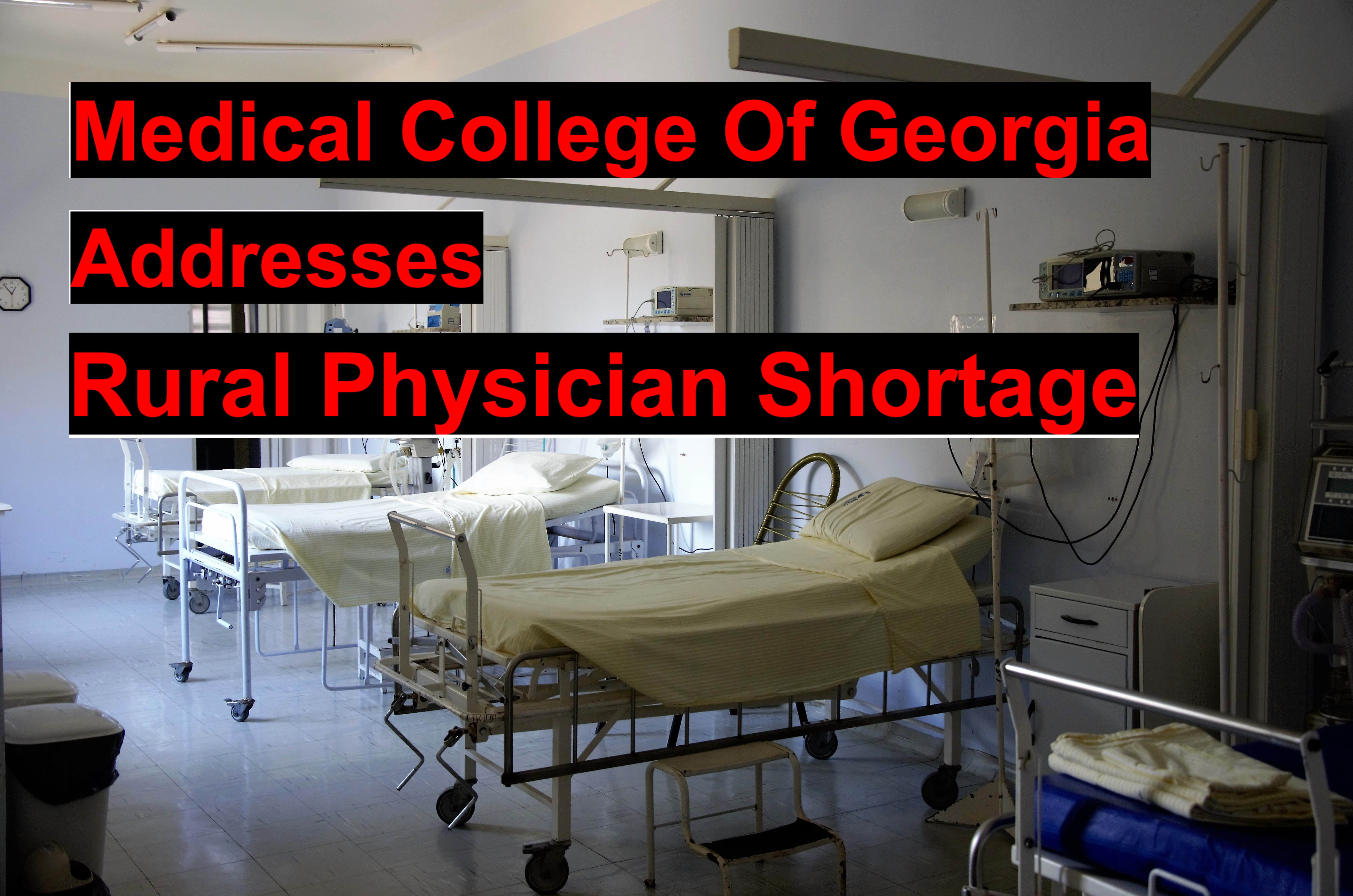Georgia’s physician shortage in rural counties was a serious public health crisis before the pandemic and it is only getting worse. The Medical College Of Georgia at Augusta University has partnered with Peach State Health Plan to tackle the problem.
Currently, Georgia ranks in the bottom 10 states with chronic medical conditions and the rural areas are the hardest hit as preventative medical care is hard for those areas to access.
According to the Georgia Board of Health Care Workforce, 60 of the state’s 159 counties have no pediatrician; 76 are without an obstetrician or gynecologist; 18 have no family medicine physician; 32 with no internist; 74 do not have a general surgeon; and sadly, nine counties have no doctor at all. The trend may only get worse as the state’s population continues to age and more doctors, specifically family practitioners, transition into retirement.
It gets worse. The GBHCW found that the overall statewide rate of 213.6 physicians per 100,000 population lagged the national average of 301.1 and the vast majority of those physicians practice in the urban areas.
Peach State Health Plan presented MCG with a $5.2 million grant to help fund a new program called MCG 3+, an accelerated medical school curriculum that has been developed to recruit, train, and place more primary care physicians in underserved communities around Georgia.
MCG Dean Dr. David Hess is excited at the partnership and its future impact on healthcare in rural Georgia because the program aims to either eliminate the fourth year of medical school or allow the student to use that fourth year for residency or research programming.
“The 3+Plus program is tailored to the students interests and it comes with many incentives for them to learn in Georgia and then stay in practice in Georgia,” he says.
The program focuses on increasing the number of students while also reducing class size. It reduces the amount of textbook learning and lecture classes while focusing on case based, patient centered learning.
“A lot of time spent in medical school is just going back over material the students have already learned,” says Hess.
For prospective primary care physicians, it reduces the time spent in medical school down to three years with a residency spent largely in the rural areas.
Primary care physicians are the primary targets of the program, but there are other options for prospective students who wish to continue a full four year program.
Other options include pursuing a combined degree such as a Masters in Business degree or a Masters in Public Health degree, advanced residency training for specialized medicine or taking that final year as a “research year” studying such areas as cancer research.
Perhaps the biggest incentive for students is that the grant funded by Peach State Health Plan goes towards scholarships for prospective physicians that agree to finish their residency in rural areas.
The scholarship pays for the cost of medical school for each year the resident doctor works in rural practice. That means if the doctor stays three years in rural residency, all three years of medical school are paid in full.
“Our aim is to give them the financial flexibility in hopes they will be exposed to those rural areas and form bonds with their colleagues and decide that they want to stay where they are and continue to practice in Georgia,” Hess says. “We have a real opportunity here to train our physicians here and keep them here.”
Scott Hudson is the Managing Editor of The Augusta Press. Reach him at scott@theaugustapress.com










